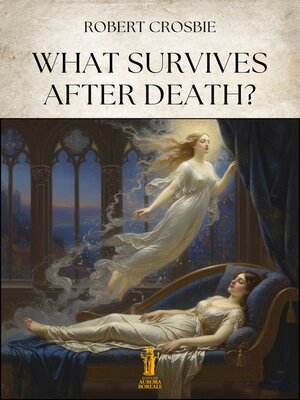
Sign up to save your library
With an OverDrive account, you can save your favorite libraries for at-a-glance information about availability. Find out more about OverDrive accounts.
Find this title in Libby, the library reading app by OverDrive.



Search for a digital library with this title
Title found at these libraries:
| Library Name | Distance |
|---|---|
| Loading... |
Robert Crosbie (1849-1919) was a Canadian theosophist, initiate and philosopher, founder of the United Lodge of Theosophists (ULT).
Among his most important works, we remember The Friendly Philosopher. Letters and Talks on Theosophy and the Theosophical Life (The Theosophy Company, Los Angeles 1934); Answers to Questions on The Ocean of Theosophy (The Theosophy Company, Los Angeles 1933); Notes on The Bhagavad-Gita, with William Quan Judge (The Theosophy Company, Los Angeles 1955).
The Crosbie's article What Survives After Death?, which we propose to our readers today, was published posthumously in the Theosophy Magazine in August 1920.
According to Crosbie, «Day after day we are constantly confronted by the fact that we are all subject to death. No matter how we may live, whether our lives bring to us failure or the greatest possible success in the eyes of the world, death is there at the end. So sure as there is birth for us, so there is death. Each one knows that sooner or later death must be his portion; but what does he know of after-death?».
Among his most important works, we remember The Friendly Philosopher. Letters and Talks on Theosophy and the Theosophical Life (The Theosophy Company, Los Angeles 1934); Answers to Questions on The Ocean of Theosophy (The Theosophy Company, Los Angeles 1933); Notes on The Bhagavad-Gita, with William Quan Judge (The Theosophy Company, Los Angeles 1955).
The Crosbie's article What Survives After Death?, which we propose to our readers today, was published posthumously in the Theosophy Magazine in August 1920.
According to Crosbie, «Day after day we are constantly confronted by the fact that we are all subject to death. No matter how we may live, whether our lives bring to us failure or the greatest possible success in the eyes of the world, death is there at the end. So sure as there is birth for us, so there is death. Each one knows that sooner or later death must be his portion; but what does he know of after-death?».







